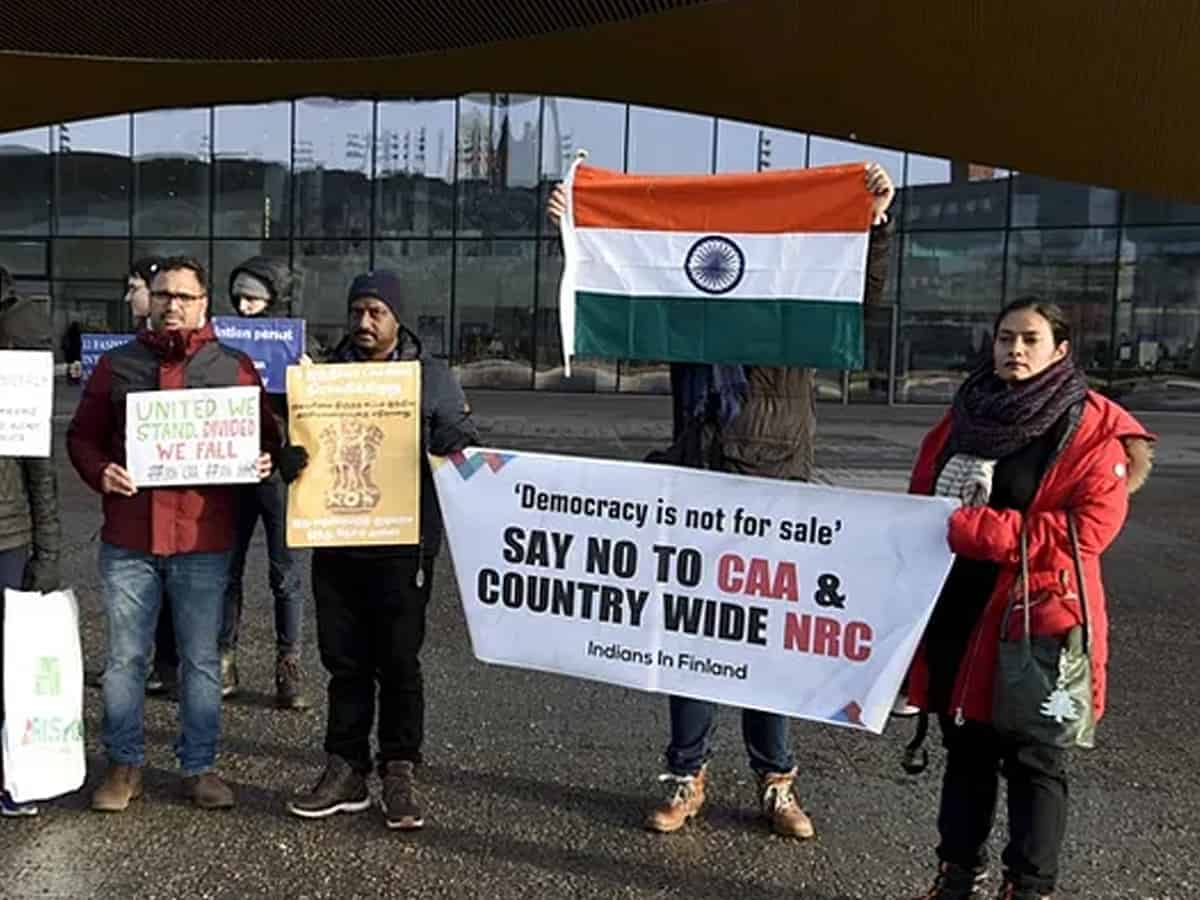NEW DELHI: There will be no voting in the European Parliament on the resolution on the Citizenship Amendment Act (CAA) on Thursday, government sources told ANI.
The voting in the Parliament was scheduled for Thursday on a five-page resolution tabled by Members of the European Parliament against the Citizenship Amendment Act but was postponed until March.
The resolution alleged that the CAA is not only “discriminatory” and “dangerously divisive” but also a “violation of India’s international obligations under the International Covenant on Civil and Political Rights”.
“In a diplomatic victory for India, there will be no voting on the EU resolution on CAA tomorrow. Friends of India prevailed over friends of Pakistan in the European Parliament today,” government sources said. A Pakistan-origin Member of European Parliament (MEP) Shaffaq Mohammed is reportedly behind the draft resolution against the CAA.
The sources said that Mohammed’s efforts to get the resolution passed were “defeated”.
“Strenuous efforts of outgoing British MEP Shaffaq Mohammed to get the resolution passed by the European Parliament against India on the penultimate day of Brexit was defeated,” the sources added.
“CAA is a matter internal to India and has been adopted through a due process through democratic means. We expect that our perspectives in this matter will be understood by all objective and fair-minded MEPs,” the sources added.
Although there has been no official reaction from the External Affairs Ministry on the resolutions, sources had earlier said that the CAA is an internal matter of India adopted through a democratic process after a public debate in both Houses of Parliament.
The sources had also called on those members of the European Parliament (MEPs), who intended to move the resolutions, to engage with the Indian government to get “full and accurate assessment of the facts before they proceed further”.
Excluding Muslims, the amended Citizenship Act grants citizenship to Hindus, Sikhs, Jains, Parsis, Buddhists and Christians fleeing religious persecution from Pakistan, Afghanistan, and Bangladesh and who came to India on or before December 31, 2014.

